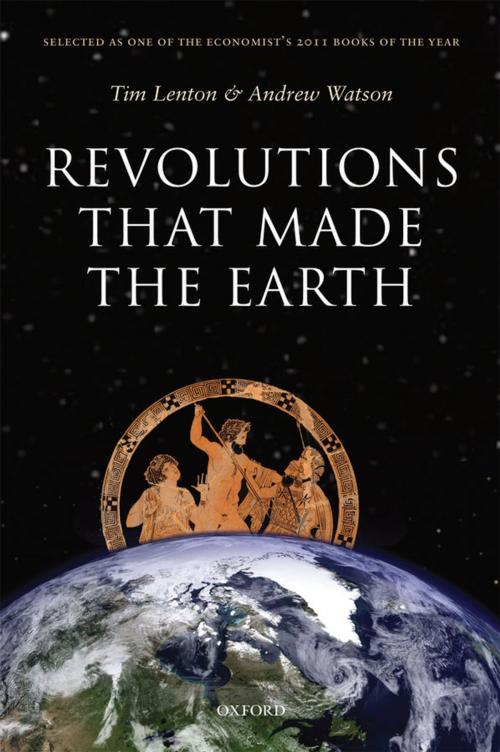Revolutions that Made the Earth
Nonfiction, Science & Nature, Science, Earth Sciences, Geophysics, Nature| Author: | Tim Lenton, Andrew Watson | ISBN: | 9780191501777 |
| Publisher: | OUP Oxford | Publication: | April 11, 2013 |
| Imprint: | OUP Oxford | Language: | English |
| Author: | Tim Lenton, Andrew Watson |
| ISBN: | 9780191501777 |
| Publisher: | OUP Oxford |
| Publication: | April 11, 2013 |
| Imprint: | OUP Oxford |
| Language: | English |
The Earth that sustains us today was born out of a few remarkable, near-catastrophic revolutions, started by biological innovations and marked by global environmental consequences. The revolutions have certain features in common, such as an increase in complexity, energy utilization, and information processing by life. This book describes these revolutions, showing the fundamental interdependence of the evolution of life and its non-living environment. We would not exist unless these upheavals had led eventually to 'successful' outcomes - meaning that after each one, at length, a new stable world emerged. The current planet-reshaping activities of our species may be the start of another great Earth system revolution, but there is no guarantee that this one will be successful. The book explains what a successful transition through it might look like, if we are wise enough to steer such a course. This book places humanity in context as part of the Earth system, using a new scientific synthesis to illustrate our debt to the deep past and our potential for the future.
The Earth that sustains us today was born out of a few remarkable, near-catastrophic revolutions, started by biological innovations and marked by global environmental consequences. The revolutions have certain features in common, such as an increase in complexity, energy utilization, and information processing by life. This book describes these revolutions, showing the fundamental interdependence of the evolution of life and its non-living environment. We would not exist unless these upheavals had led eventually to 'successful' outcomes - meaning that after each one, at length, a new stable world emerged. The current planet-reshaping activities of our species may be the start of another great Earth system revolution, but there is no guarantee that this one will be successful. The book explains what a successful transition through it might look like, if we are wise enough to steer such a course. This book places humanity in context as part of the Earth system, using a new scientific synthesis to illustrate our debt to the deep past and our potential for the future.















